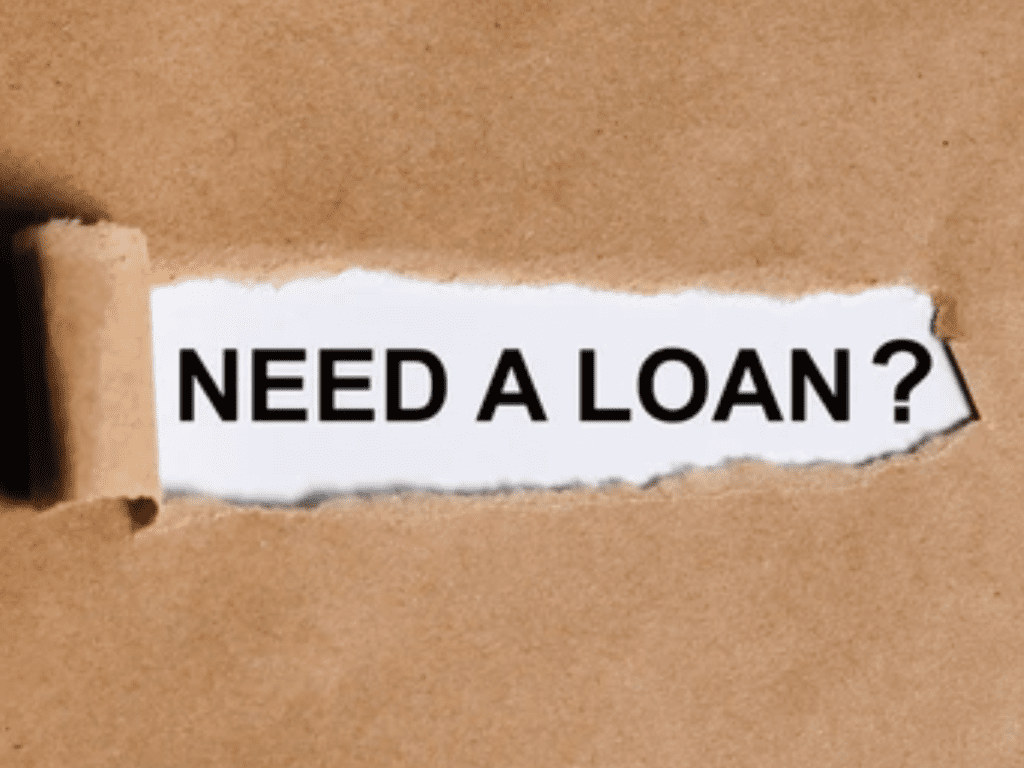Introduction
Emergencies can strike at any moment. A sudden medical issue, a car breakdown, or an unexpected home repair can cause major stress, not just emotionally but financially as well. When these situations occur, many people turn to personal loans to help cover the immediate expenses. Personal loans are often seen as a quick and easy solution for managing urgent financial needs. However, while they may provide short-term relief, there are significant risks associated with relying on them, especially if they become a regular go-to solution for emergencies.
In this article, we will explore the various risks of relying on personal loans during emergencies, including the potential financial consequences, the effect on credit scores, and the emotional strain that can accompany taking on additional debt. Additionally, we will examine some alternative solutions to personal loans and how individuals can better prepare for emergencies without becoming overly dependent on borrowed money.
1. High-Interest Rates and Fees
One of the most significant risks of taking out a personal loan for an emergency is the high-interest rate that often accompanies it. Personal loans, especially those that are unsecured, can have interest rates much higher than other forms of credit, such as credit cards or home equity loans. The interest rate can vary depending on your credit score, income, and the lender’s policies, but it is not uncommon to see rates upwards of 20% or more, especially for borrowers with poor credit.
These high rates mean that the cost of borrowing money can increase significantly over time. While you may initially feel relief when you receive the loan, over the course of several months or years, the total amount repaid can be much higher than the original loan amount due to interest. This is particularly true for larger loans or long repayment terms.
Additionally, personal loans often come with various fees, such as origination fees, late payment fees, and early repayment fees. These fees can add even more cost to the loan, making it even more difficult to manage.
2. The Risk of Falling Into Debt Cycles
Taking out a personal loan to cover an emergency expense may initially seem like a good solution. However, if the emergency was not truly a one-time occurrence or if other unforeseen expenses arise, you may find yourself taking out another loan in the near future to cover the next emergency. This can quickly lead to a cycle of borrowing and repaying loans, which can become overwhelming and difficult to break free from.
Debt cycles are particularly dangerous because they can lead to long-term financial instability. As you continue to borrow money to cover emergencies, your total debt increases, and it becomes more difficult to keep up with the repayment schedule. As missed payments and interest accumulation snowball, it can become a vicious cycle that is hard to escape from, leading to deeper financial trouble.
3. Negative Impact on Credit Scores
A personal loan can affect your credit score in a variety of ways. When you apply for a loan, the lender will perform a hard inquiry on your credit report, which can cause a temporary dip in your credit score. If your credit score is already low, this hard inquiry can further hurt your credit profile.
Moreover, if you miss payments or default on the loan, the negative impact on your credit score can be long-lasting. Payment history is the most significant factor affecting your credit score, and missed payments or defaults can lower your score significantly. A lower credit score means that you may face higher interest rates on future loans or credit cards, making it even harder to recover financially.
In addition to missed payments, high levels of debt relative to your available credit can also harm your credit utilization ratio, further damaging your score. This could make it more difficult to access credit in the future when you need it, potentially putting you in a worse financial position than before.
4. Potential for Increased Financial Stress
While a personal loan might temporarily ease the financial burden of an emergency, the ongoing obligation to repay the loan can cause significant stress. Knowing that you owe money and have a fixed repayment schedule can weigh heavily on your mental and emotional well-being.
If you are already experiencing financial difficulties, taking out a loan may not solve the underlying issues. Instead, it may create additional financial pressures that can exacerbate your stress levels. The constant worry about meeting monthly payments can lead to anxiety and a sense of helplessness, especially if the loan takes longer to repay than expected.
In extreme cases, financial stress can affect your physical health, leading to sleep issues, anxiety, and even depression. The psychological toll of managing personal debt can be severe, making it essential to consider whether taking on a loan is truly the best option for your situation.
5. Loss of Assets
In some cases, personal loans may be secured by assets such as your car or home, meaning that the lender has the right to seize these assets if you fail to repay the loan. While unsecured personal loans do not have this risk, they still come with the risk of losing access to credit, which can be a significant blow if you rely on borrowing to cover financial needs.
If you are unable to meet your repayment obligations, the lender may take legal action to recover the loan amount, including wage garnishment or property seizure. Losing assets can have long-term consequences, especially if the property or asset is important for your livelihood, such as a car necessary for commuting to work.
6. Impact on Long-Term Financial Goals
Relying on personal loans for emergencies can also impede your ability to achieve long-term financial goals. For instance, if a significant portion of your income is dedicated to repaying loans, you may not have enough money to save for retirement, buy a home, or invest in your future. Personal loans create ongoing financial obligations that take priority over other important financial goals, which can delay or prevent you from achieving them.
Additionally, borrowing money to cover emergencies can prevent you from building an emergency fund in the first place. An emergency fund is a critical component of financial planning, as it provides a cushion for unexpected expenses without the need to resort to borrowing. Without an emergency fund, you may find yourself in the same position time and time again, constantly borrowing money to cover life’s unpredictabilities.
7. Limited Lender Options
Another risk of relying on personal loans for emergencies is that not all lenders offer favorable terms. Some lenders may prey on individuals in financial distress by offering loans with exorbitant interest rates or hidden fees. In times of desperation, borrowers may not take the time to research lenders properly, and they may end up accepting loan terms that are far worse than expected.
While there are reputable lenders that offer competitive terms, the sheer number of options available can make it difficult to identify the best choice. Without thorough research and comparison, you may end up with a loan that leaves you in a worse financial position than you were before the emergency.
8. Strained Relationships
Borrowing money, whether from a financial institution or family members, can strain relationships. If you take out a personal loan to cover an emergency, there may be pressure to repay the loan quickly, leading to added stress. If you are borrowing from friends or family, the dynamic can become even more complicated, as there may be expectations or even resentment if you are unable to repay the loan as agreed.
This strain on personal relationships can cause emotional stress, leading to conflicts and misunderstandings. It can also create long-lasting damage to trust if the loan is not repaid as expected.
9. Inability to Fully Assess Loan Terms
When faced with an emergency, many individuals may rush into taking out a personal loan without fully understanding the terms and conditions. In the heat of the moment, it’s easy to overlook fine print or fail to consider the full cost of the loan, including interest rates, fees, and repayment schedules.
This lack of careful assessment can result in financial hardship later on. For example, loans with high penalties for late payments or loans that require higher monthly payments than anticipated can add significant financial pressure. Without fully understanding the repayment terms, borrowers can find themselves facing unexpected costs or struggling to meet obligations.
10. Alternatives to Personal Loans for Emergencies
While personal loans can be a quick fix for an emergency, there are other ways to manage sudden expenses without relying on borrowed money. Some of these alternatives include:
- Emergency Savings Fund: Building an emergency savings fund is one of the most effective ways to prepare for financial emergencies. Having a cushion of savings can help you avoid borrowing money altogether and give you peace of mind knowing you have resources available when needed.
- Credit Cards: In some cases, using a credit card with a low-interest rate or promotional offers might be a better option than a personal loan. However, credit cards should still be used cautiously, and paying off the balance as quickly as possible is essential to avoid high-interest charges.
- Family or Friends: If the emergency is truly pressing and you have a support network, borrowing from family or friends might be a viable option. However, this should be approached carefully to avoid damaging relationships.
- Insurance: Depending on the nature of the emergency, insurance may be able to cover some of the costs. For example, health insurance can help with medical emergencies, while car insurance can cover accidents or breakdowns.
Conclusion
While personal loans can seem like a quick and convenient solution for emergency expenses, relying on them too frequently carries significant risks. High-interest rates, the potential for debt cycles, damage to your credit score, and the emotional stress of debt can make personal loans a risky choice. It’s crucial to carefully consider the terms and explore alternative options, such as building an emergency fund, using insurance, or seeking assistance from family or friends.
Ultimately, preparing for emergencies in advance by building savings and exploring other financial tools can help reduce the need to rely on loans during times of crisis. By understanding the risks and weighing all your options, you can make more informed decisions and avoid the long-term consequences of excessive borrowing.

